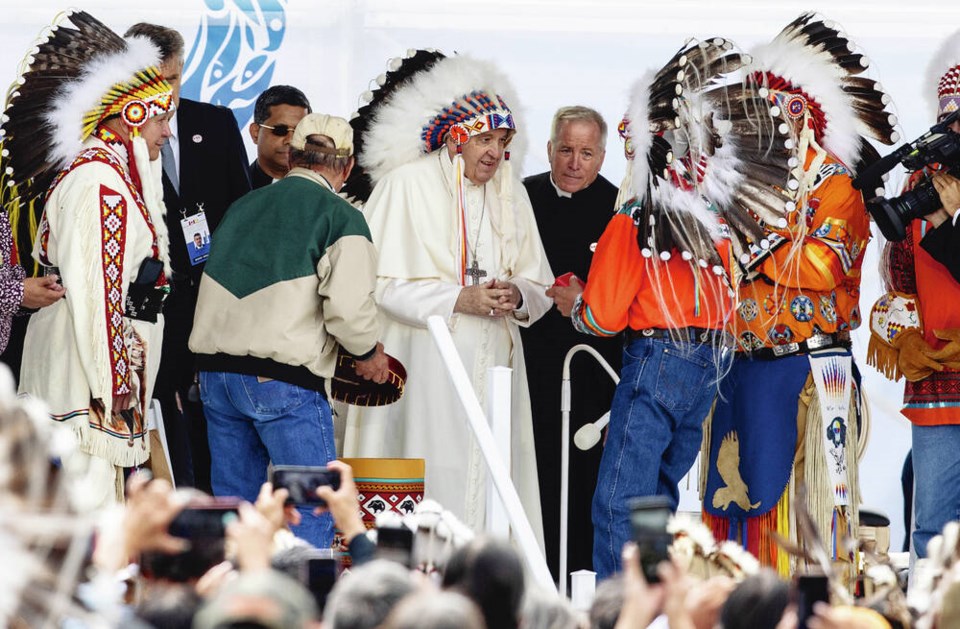SASKATOON — Elder Henry Pitawanakwat is making a passionate plea to help Indigenous language speakers like him preserve one of the most important parts of their culture. He says he is hoping Pope Francis’s week-long visit to Canada has helped create awareness of this issue.
Pitawanakwat works on a contract basis translating and transcribing the Ojibwe language at the Translation Bureau under Public Services and Procurement Canada, the department within the federal government that is in charge of internal servicing and administration activities.
“I have been working with them since 2018 and it’s mostly for the federal election debate, but we do get side projects,” Pitawanakwat told SASKTODAY.
The Translation Bureau is a branch of the government that serves the people by communicating in both official languages, English and French, and Indigenous languages like Cree, Dene, Ojibwe and Chippewa.
Pitawanakwat is a language keeper and knowledge holder from the Three Fires Confederacy. He is an Anishinaabemowin speaker fluent in Algonquin, Chippewa, Odawa, Ojibwe and Pottawatomi.
He said efforts should be made to preserve Indigenous languages by teaching them to the next generation since the language holders, keepers, speakers and translators are not getting any younger.
“All the language speakers, [Indigenous] language translators and language holders, we’re all of age. You’re not going to find any that are young today. If there are some, they are very few in numbers,” said Pitawanakwat, who is passionate about Indigenous language revitalization.
His passion to revive Indigenous languages covers all aspects that including speaking, teaching and knowledge sharing, as illustrated by his more than 40 years of work as an archaeologist and in translating all dialects of Anishinaabemowin at the Museum of History in Gatineau, Que.
He said it is the duty of language holders, keepers, speakers and translators like him to raise awareness of the state of Indigenous languages across the country as they seek help from authorities for any assistance.
“We're rapidly losing our language. It's rapidly becoming threatened to be extinct and we need help. This is what's important to me. Yes, this is my duty here. This is my duty, which speaking with you right now is to create awareness of the situation,” said Pitawanakwat.
Indigenous languages hold knowledge
“What people don't understand is Indigenous languages are very unique. It holds a lot of knowledge, not only about the past but to save the future of the planet for our future generations. We have to start thinking about our future generations.”
He said that Indigenous communities should get some compensation to repair the damage through cultural genocide done through years of trying to assimilate Indigenous children into the western culture. Children attending residential schools were punished when they spoke their native tongue.
“If they start funding us, [like] the Jesuits [Society of Jesus] to repair the damage because our elders, our grandmothers and grandfathers, our parents were severely punished in residential schools simply by using their language. We need some compensation for that,” said Pitawanakwat.
“We were made to rely on money. Money never meant anything to my people and now we cannot do it without money. We need funding to create immersion schools to save our language and our culture. Share the richness of our knowledge with the world.”
He added that there is funding available from the federal government but they have to compete with other Indigenous communities all across the country and if they get money for a project or program it won’t be enough to sustain it.
“We need to do this and it's a very critical point of what I'm trying to create awareness for. What they [federal government] don't realize is we have so many communities across Canada and there's barely enough to do anything. That is a serious problem,” he said.



